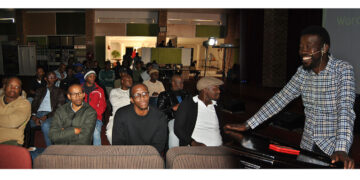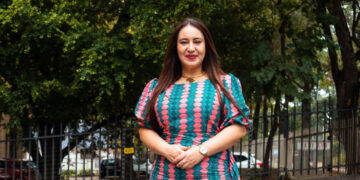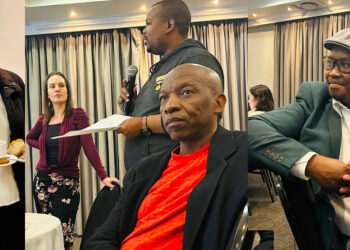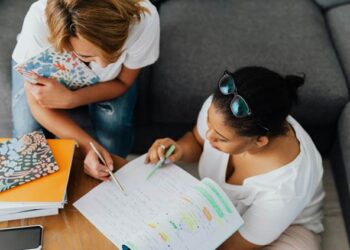RESEARCH, EDUCATION EXPERTS FIND LEARNING THROUGH PLAY CRITICAL IN EARLY CHILDHOOD DEVELOPMENT
On the 1st August 2024, Sesame Workshop’s Advocacy Event in Northriding Johannesburg, Sesame Workshop presented the findings of a five-year, multi-media adventure that aimed to boost Learning Through Play skills among educational leaders, educators, caregivers, and social workers who worked with little ones in Early Childhood Development (ECD) centres. Sesame Workshop, the global impact nonprofit behind Sesame Street, and the LEGO Foundation’s Play to Learn Impact Evaluation Study took place in the Free State and the Eastern Cape, during 2023, and the programme reached over 138 000 children. The study set out to supercharge the abilities of educators and caregivers, to bring the power of play-based learning into the lives of young children everywhere.
Following the research results, a panel discussion hosted by MC Elana Afrika Bredenkamp, and made up of education experts from the likes of UNISA, UNICEF and South African Department of Basic Education, found that Learning Through Play (LTP) is a critical vehicle for education and advancing childhood development.
Fathima Rawat from Sesame Workshop led an interactive activity to both present the Play to Learn Impact Evaluation findings, while demonstrating the power of Learning Through Play.
Mari Payne, Deputy Managing Director and Senior Director Education and Outreach, Sesame Workshop International South Africa (SWISA) said the event demonstrated the importance play has in early childhood development, and the role of children’s media in empowering young minds.
“Play is the natural language of childhood. Through play children imagine, express, explore and understand the world around them,” she explained. “From birth to age six, when the brain develops rapidly, play offers rich experiences that accelerate the physical, cognitive and socio-emotional growth of a child. The challenge though, is that educators and caregivers do not always see the value of play or its link with learning.”
With this in mind, in 2018, Sesame Workshop and the LEGO Foundation partnered to address this need – to demonstrate the importance of caregivers understanding this valuable link between learning and play.
This initiative was a five-year, multi-media adventure that aimed to boost Learning Through Play skills among educational leaders, educators, caregivers, and social workers who worked with little ones in Early Childhood Development (ECD) centres.
“Our mission was to supercharge the abilities of these educators and caregivers, to bring the power of play-based learning into the lives of young children everywhere. This research coincided with four brand-new seasons (Seasons 11-14) of the popular children’s show, Takalani Sesame hitting the airwaves,” said Payne.
Payne further explained, “We had four exciting prongs of programming: caregiver workshops, training of educators, training of social workers and the training of play promoters”.
The research posed the following questions for Community Engagement and Mass Media audiences:
- To what extent does participating in Pay to Learn community engagement interventions change caregiver and educator outcomes compared to those who do not participate?
- How do caregivers and CEO educators access and experience the Play to Learn programme?
- To what extent does encouragement of viewing Takalani Sesame episodes contribute to improvement in children’s task persistence skills, compared to children who are not encouraged to view?
- What are families’ perceptions of the media content? What aspects of the media experience do they value? What aspects or ideas were confusing or challenging, if any?
The study, funded by The LEGO Foundation, found that:
- Educators and caregivers are more likely to use playful learning practices after participating in workshops
- Caregivers reported an increase in playful learning after watching Takalani Sesame episodes
- Co-viewing is linked to improved caregiver-child interaction, as 70% of caregivers said they watched at least some videos together with their child
- At endline, caregivers demonstrated more support for playful learning practices through media
Kerry Kassen, Regional Director for Africa at the LEGO Foundation, said, “We’re pleased to support this initiative, because Learning Through Play (LTP) is a critical vehicle for education and advancing childhood development. We want to empower caregivers and educators with the knowledge of how Learning Through Play benefits children’s holistic development.”
Payne noted the results further found that Takalani Sesame remains extremely popular with families and most parents believe the show can teach their children how to play well with others and provide ideas for play. In addition, it showed that children love Takalani Sesame characters and their ability to identify characters is related to learning outcomes.
“Co-viewing with a trusted adult is linked to better caregiver-child interactions; we have noted that additional strategies to encourage co-viewing can be incorporated into future programming,” she said.
Commenting on the research outcomes, Payne said, “Following our educator sessions, educators discovered that incorporating play into their teaching and caregiving practices brings joy, keeps children engaged, and helps them learn faster. It’s a game-changing approach that’s transforming their interactions with children and making a positive impact on their development.”
“We are also thrilled to report that play workshops had a truly heartwarming impact on caregiver-and-child relationships, as caregivers learned the art of engaging and allowing their children to take the lead in play. The results were remarkable, with many caregivers reporting newfound discoveries about their children and a sense of closeness like never before,” reported Payne.
The social worker group found that play has a remarkable ability to heal and transform. “It is through play that we find solace, joy, and a sense of restoration. When we engage in play, whether as children or adults, we tap into a profound source of healing and well-being”, added Payne.
Globally, these results provide important insights on our organizational priorities around play-based socio-ecological program design, particularly in development and humanitarian contexts.
For the panel discussion, the panel of experts was made up of industry heavyweights.
- Mari Payne – Deputy Managing Director and Senior Director Education and Outreach, Sesame Workshop International South Africa (SWISA)
- Prof. Hasina Banu Ebrahim – Research Professor in the Department of Early Childhood Education at UNISA
- Kgopotso Tryphosa Khumalo – Consultant for the United Nations International Children’s Emergency Fund (UNICEF)
- Pearl Phoolo – Standard Bank South Africa Senior Corporate Social Investment (CSI Manager)
- And as Keynote speaker: Dr Janeli Kotzé – Acting Director for Early Childhood Development at the South African Department of Basic Education
The discussion centred around the development of cognitive and social-emotional skills, leveraging interactive media to enhance play experiences, and best practice in children’s media. “I’d like to thank our team of esteemed panellists for providing an excellent, informative discussion, which perfectly framed the importance of Learning Through Play,” said Payne.
The panellists agreed that Learning Through Play has a critical role in a child’s cognitive and social-emotional development, and that interactive media can and should be leveraged to facilitate engaging and educational play experiences.
“Play-based learning has an essential role in children’s development as they grow and move through the world. By supporting their curiosity and encouraging them to explore, problem-solve, regulate their emotions and more, we start to build not only their sense of safety and trust, but also empower them from a young age,” concluded Payne.
Soweto Sunrise News


































